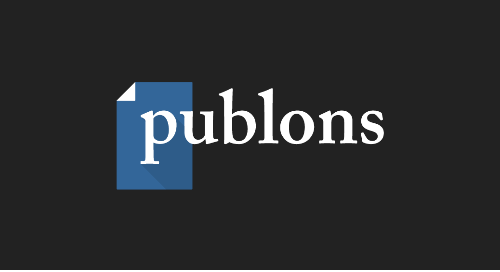committee-on-publication-ethics-cope-101
September 18, 2019
What is COPE?
COPE (Committee on Publication Ethics) is a non-profit organization dedicated to promoting integrity in research and its publication. COPE provides thought leadership on publication ethics and practical resources to educate and support editors and publishers. The organization serves as a trusted, professional voice in current debates about integrity in publishing ethics. Their aim is to influence all the stakeholders in scholarly publishing to make ethical standards an integral part of day-to-day practice.
Wiley supports membership in COPE for all of our journal editors and any other individual on the journal’s team that the editor nominates. COPE asks all members to adhere to its Core Practices in publication ethics (more about this below), and COPE provides the resources and training required to do so.
Via the COPE website, you can access:
 | COPE’s recommended Core Practices for journals and publishers |
 | Flowcharts for the sequence of steps that can be taken when handling potential issues in integrity and ethics |
 | Information about past cases and the approach taken to resolve them |
 | Official guidelines including advice regarding retractions |
 | Discussion documents on topical issues, for example preprints |
There is also a monthly newsletter, the COPE Digest which provides news on COPE’s activities and other current publication ethics issues straight to your inbox. We encourage you to register to receive the newsletter.
COPE's Core Practices

The “Core Practices” are policies and practices that journals need to adopt to ensure they are adhering to robust standards in publication ethics. The practices reflect principles of transparency as well as COPE’s aim to preserve and promote the integrity of the scholarly record.
COPE Forum
One of the main benefits of COPE is the quarterly Forum, where members can bring individual “cases” in publication ethics for discussion and advice. Forums provide an opportunity for journals to share a particularly challenging issue for discussion and further advice. These are held via webinar so that members can easily attend wherever they are in the world.
Flowcharts
The COPE Flowcharts are a series of helpful “decision trees” to guide editors in handling a particular publication ethics issue. For example, if you are faced with a case of suspected plagiarism in a published article, you can follow the flowchart on plagiarism and work through the steps. There are currently 18 flowcharts—available in multiple languages—covering a wide variety of typical situations editors may face.
Cases Database

All of the integrity and ethics cases brought to COPE forums for discussion from 1997 onwards have been entered into a searchable database. This database contains over 500 cases together with the advice given by COPE members at the time, and information on the outcomes, providing a valuable resource for users. In 2013, a new and more comprehensive classification scheme was developed to facilitate the coding of cases and to aid searching. This resulted in a new COPE Case Taxonomy, and this has also been adopted by the Integrity in Publishing Group at Wiley for the cases that are brought to this group for advice.
eLearning
COPE provides a series of ten modules designed for editors and publishers who want to improve their understanding on publication ethics (e.g.,, on issues such as plagiarism, conflicts of interest, and authorship) and provides practical guidance on how to detect, prevent, and handle misconduct.
COPE’s Audit Tool
COPE members are asked to follow the Principles of Transparency and Best Practice in Scholarly Publishing, and check journal guidelines regularly to ensure they are up-to-date with current best practice. To help with this, COPE has created a journal audit tool which is designed to assist editors in identifying areas in their journals that may need amending to comply with COPE’s core practices.
The audit is not a test or a survey, and the results are not shared anywhere; the aim is simply to encourage editors to reflect on ethical issues that may relate to their journal or the research it publishes. These issues covered by the audit include policies for handling allegations of misconduct and other complaints, data and reproducibility, and other guidelines and policies journals should have in place.
Sample Letters
Writing to authors or reviewers about potential misconduct can be a difficult task, and COPE has developed a series of sample letters (accessible only to members) to assist in these cases.
Webinars
 |
| "Wiley support was excellent. When I was faced with a difficult situation, they took immediate action, advised me all along, and were always available." |
| Patrick Hof, Editor, Journal of Comparative Neurology |
In addition to the quarterly Forums, COPE hosts seminars and webinars that provide members with a more detailed knowledge of particular issues.
In Conclusion
Making use of the many valuable resources COPE provides will help you create and promote ethical practices in your journal’s approach to fostering a culture of integrity. Wiley also has a dedicated group of colleagues with representatives from our editorial, production, and legal teams, the Integrity in Publishing Group (IPG), who are able to provide support and assistance through your Wiley journal manager. You can read more about the IPG and the typical publication ethics issues that editors grapple with here, and if you need support from IPG please reach out via your journal manager.








